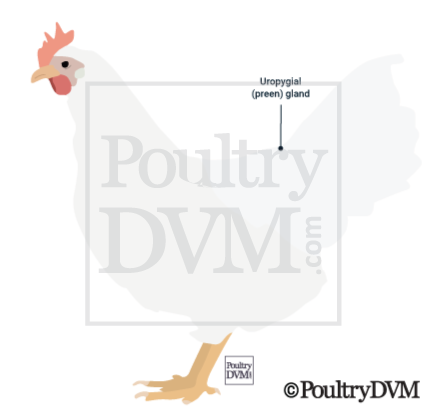Veterinary advice should be sought from your local veterinarian before applying any treatment or vaccine. Not sure who to use? Look up veterinarians who specialize in poultry using our directory listing. Find me a Vet

| Name | Summary | |
|---|---|---|
| Supportive care | Isolate the bird from the flock and place in a safe, comfortable, warm location (your own chicken "intensive care unit") with easy access to water and food. Limit stress. Call your veterinarian. | |
| Treatment depends on the underlying cause | ||
| In cases where the uropygial gland is abscessed, impacted, or metaplastic | Apply a hot compress followed by exerting digital pressure can be helpful for extruding the contents. | |
| For cases where the uropygial gland is impacted | An incision over the affected area and removal of the impacted material may be needed. Only to be performed by a veterinarian. | |
| Wound care | If an ulceration is present | |
| In cases where a tumor is present | Radiation therapy, chemotherapy and cryotherapy may be required. | |
| Anti-inflammatories |
© 2026 PoultryDVM All Rights Reserved.